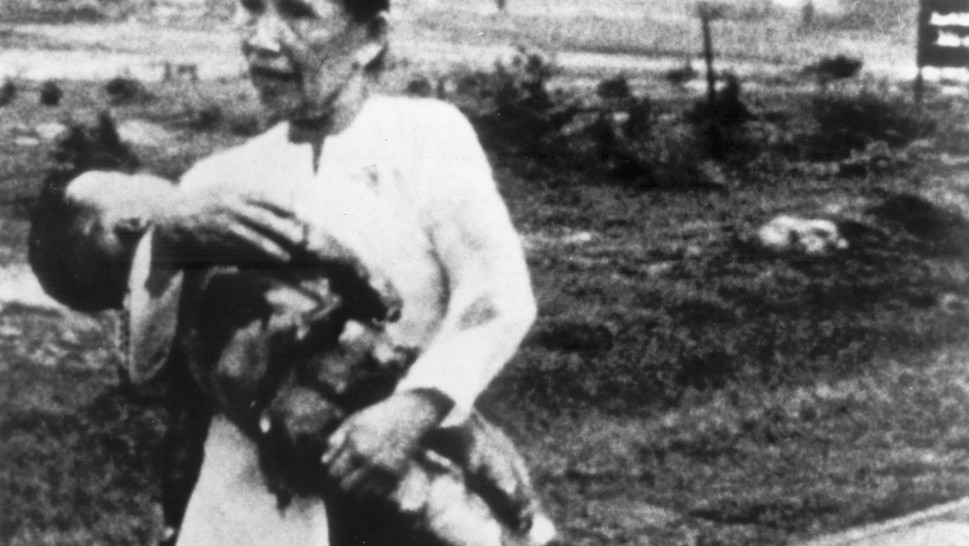
Hearts and Minds
$12 Special Event Tickets
US, 1974, 35mm, color, 112 min.
Print source: Rainbow Releasing
No one doubts that our first lost war changed attitudes toward our own country and its leadership. Even before the war had quite ended, we turtled into ourselves and unprecedentedly drove out the last president, in midterm, who had led us to defeat. The book No More Vietnams was written, tellingly, not by Marcus Raskin or Noam Chomsky but by Richard Nixon.
The Vietnam War exploded the myth that because we elect a government it will tell us the truth. The myth of American invulnerability and perseverance was likewise a war casualty. We could and did lose; we could and did quit. We saw the limits of power, the failure of intervention, the strategic uselessness—not to mention cruelty—of bombing a country that didn’t want us there, hitting it with more tonnage than had been dropped in all previous wars combined, not because the country threatened us but simply because we did not agree with its government. We learned the contradiction in a policy that was willing to destroy a country in order to “save” it, as an American officer casually claimed he was doing when he leveled a village one day. We could and did destroy an economy and much of a countryside and still had to slink out of town, our choppers bringing up the rear.
Even now, haunted by Vietnam, we have not decided on the meaning of the war. For boomers, whether they were actually there or not, it was the Big Event, as World War II was for children of the Depression. What the war meant changes with your perspective. Was the war a crime (radicals), a mistake (liberals), a mistake not to win (conservatives), a crime not to win (hard right)?
As a result of losing, we had little choice but to see ourselves in the bright light of imperialists whose imperialism had failed. “The worst thing that could happen to our country,” Mary McCarthy wrote in 1967, “would be to win this war.” – excerpt from Peter Davis’ essay ‘Hearts and Minds: Vietnam and Memory’
This screening is co-presented by Harvard's Mahindra Humanities Center in conjunction with the Andrew W. Mellon Foundation Seminar on Violence and Non-Violence.
The screening will be followed by a panel discussion—moderated by Homi Bhabha, Director of the Mahindra Humanities Center—including the director Peter Davis as well as Robb Moss, filmmaker and Professor of Visual and Environmental Studies; Peter Galison, filmmaker and Joseph Pellegrino University Professor; and Hue-Tam Ho Tai, Harvard's Kenneth T. Young Professor of Sino-Vietnamese History.
A landmark documentary, Hearts and Minds remains the definitive cinematic examination of the Vietnam conflict and shocks with its unflinching, compassionate comprehension of all sides in the confounding, complex war. Assembling an extensive array of interviews, combat footage, aerial offensives and unstereotypical portraits of northern and southern Vietnamese and Americans, Davis conscientiously weaves events and personalities both large and small into a startling, powerful tapestry that ranges from the grief of Vietnamese civilians burying loved ones to the staggering ignorance of American officials. Winning the 1974 Academy Award for Best Documentary, Hearts and Minds potently reverberates forty years later, continuing to contribute to a larger understanding of war and all of its participants.








